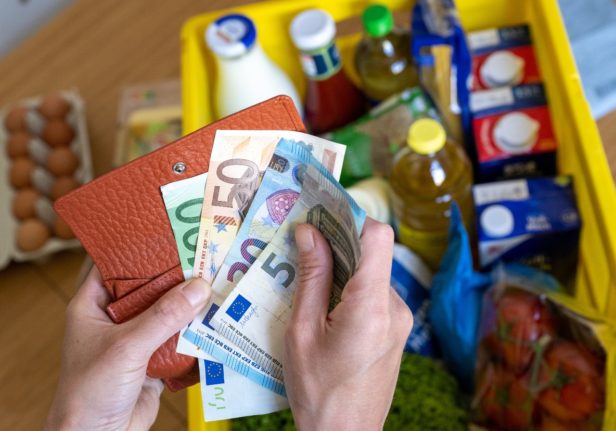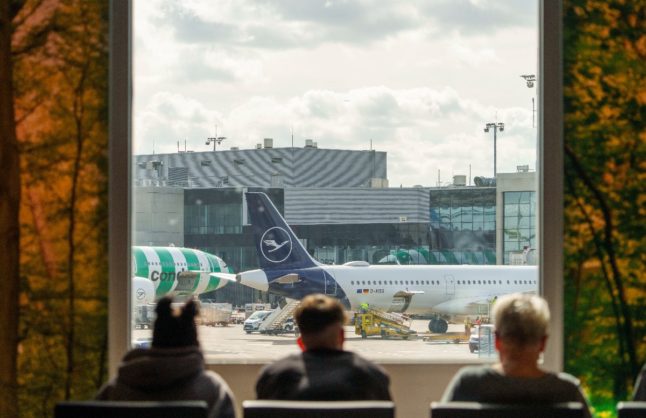In Germany’s rural regions, it has become increasingly costly to get basics like butter and bread in the past decades due to the closure of many community grocery shops.
Between 1990 and 2020, the number of smaller German grocery shops with up to 400 square metres of sales space declined from 66,500 to about 8,400. Larger supermarkets like REWE also often lie out of easy reach.
READ ALSO: All abroad: grocery bus caters to isolated German villages
Could drones offer a solution for such regions? This is now being piloted through two delivery projects in Berlin’s neighbouring Brandenburg state and Hesse, both which aim to work with suppliers in more urban areas and deliver groceries to rural residents via the remote controlled flying objects.
In Wusterhausen in Brandenburg, northwest of Berlin, an “urban-rural drone” project aims to test whether the drones are cost efficient and quick enough to launch a regular service – which could then be rolled out to other parts of the country.
The first delivery drones in the project, financially backed by Germany’s Ministry of Agriculture, are to fly in Wusterhausen from spring 2024. Residents interested in participating can already sign up.
The second drone project, called “Drolex”, will launch on Thursday in Michelstadt, southeast of Darmstadt in Hesse.
“Drolex” stands for “drone cargo bike express delivery”, with the idea of combining the transport of goods by cargo bike and drone transport – possibly reducing some of the costs by dividing up air and land transport.
But trade expert Gerrit Heinemann from the Niederrhein University of Applied Sciences is sceptical.
Deliveries by drone are only possible to a very limited extent in Germany due to the heavy regulation of drone flights for airspace safety reasons, he told DPA.
“Anything that makes food more expensive in Germany than the food that is at the discount supermarkets is, in my view, not feasible, at least at the moment, because Germans buy price-oriented and don’t see the point of paying even one cent more,” Heinemann said
But a lack of other options for those living in rural areas could bring about a change, argue the projects’ founders.
They point out that other alternative offerings for groceries – such as grocery vending machines or ‘supermarkets on wheels’ – have often gained a foothold in small town Germany following grocery shop closures.



 Please whitelist us to continue reading.
Please whitelist us to continue reading.
Member comments